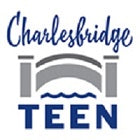Turn of the Century

Ellen Jackson, author
Ellen Jackson grew up in Glendale, California, where her mother worked for Walt Disney Studios. Her childhood interests centered around reading. She has traveled in Europe and South America, including the Amazon jungle and the Galapagos Islands.
Read more about Ellen.
Jan Davey Ellis, illustrator
Jan Davey Ellis is a native of Ohio. She received her B.F.A. in Painting from Miami University in Oxford, Ohio. Jan spent most of her childhood reading. She pored over the illustrations of her favorite books, studying the intricate drawings. She took art lessons at the Cleveland Museum of Art, moving from gallery to gallery with a little collapsible canvas stool and drawing boards, in order to sketch different works of art.
Read more about Jan.
- ABA Pick of the Lists, Fall 1998
- TX Bluebonnet Award Master List, 1999–2000
- Children's Literature Top Choice List for 1999
- Read, America! Collecton, 1998
- New York State Reading Association Charlotte Award Reading List (shortlisted), 1998-2000
- Read Aloud Books Too Good to Miss, Office of Learning Resources, IN Dept. of Ed., 1999-2000
- Time for Kids Recommended Reading List, Dec. 1999
- Children's Crown Award (Nominee), 2000-2001
- Kentucky Bluegrass Award Master List, 2000–2001
- 2000-2001 Utah Children's Book Awards (nominee), 2000–2001
- Instructor Magazine's 71 Top Books of the Century (nonfiction), 2001
- Booklist/Editor's Choice
- 2005 California Collection
Kirkus Reviews, starred review
An ambitious fact book about children from the past, present, and near future highlights millennium years. Jackson (The Book of Slime, 1997, etc.) explains that the next millennium will actually begin with the year 2001, and provides information on marking the new year, historically. She draws on many sources to present facts on 11 children living in either England or America, beginning with a peasant boy in the year 1000. ""I own only the clothes on my back, and they once belonged to my grandfather,"" the ten-year-old boy states in a short monologue. A list of facts that identify the era follows: ""Books are rare and valuable. Many people have never seen one."" The format follows in double-page spreads, one devoted to each child. There is Eleanor, a child of the upper classes, betrothed at age seven and living in a nunnery in 1100. Alice, ten, is a chambermaid in 1400; her toys are tops, soap bubbles, shells, and stones. An eight-year-old in Pennsylvania describes ice cream in 1900 and a boy in California rings in the year 2000 while making microwave popcorn and phoning his sister in Australia. While only two pages illustrate each century, Ellis includes countless revealing, domestic details that extend the text, and make vivid these children's lives. An astute and provocative book for browsing, or for tying into assignments on the approaching millennium.
School Library Journal
This informative picture book introduces youngsters to history through 11 fictitious children, each living in a different period. Their stories are told on the eve of each century from 1000 to 2000. For each child, a first-person, day-in-the-life account accompanies a brief list of facts about that particular time. For example, readers meet a 10-year-old peasant boy in the year 1000 and discover that during his lifetime books were rare, many children died before their seventh birthday, and England was called Angle-land. The many full- and three-quarter page watercolor and colored-pencil illustrations vividly reflect each child's life and provide additional information about the period depicted. Detailed borders add decorative touches. An excellent list for further reading is included. A fine resource to add to any social studies or history curriculum and a delightful and timely choice as the year 2000 approaches. –Susan Knell, Pittsburgh State University, Pittsburgh
Booklist
With the millennium fast approaching, this is a perfect time for looking back. And that's exactly what this book does, and in a way that children can understand and will respond to. The book is oversize, and each two-page spread has a list of facts and a first-person narrative that introduces a child living in Great Britain at the beginning of each century between A.D. 1000 and 1600 and in America beginning in 1700 and through the year 2000. For instance, the first child we meet is John, a 10-year-old peasant boy living in Nottingwood: "My family works the land six days a week and gives our lord a portion of the crops. Our lord owns furs, jewelry, silver coins, and one book . . . I own only the clothes on my back." The facts include information about the rarity of books and that the New Year begins on March 25. What makes this book so appealing—and gives it such a cohesive feeling, despite the time span covered—is its design. Each spread looks into the home of the child, rather like looking inside a doll house. Eleanor, a nine-year-old in the year 1100, lives in a nunnery, and the pictures depict different rooms in the nunnery. The art shows the nuns and the girl at prayer, doing chores, and in a tower window. Each spread is decorative as well as informative and invitingly bordered with a design of the era. An enlightening preface and author's note explain more about life in other times, calendars, and dating; an extensive bibliography is appended. Teachers and librarians will find lots of uses for this; kids will just like poring over it. –Ilene Cooper
Paperback
ISBN: 978-0-88106-370-7
E-book
ISBN: 978-1-60734-289-2 PDF
Ages: 5 and up
Page count: 32
9 x 12


 Kirkus Reviews, starred review
Kirkus Reviews, starred review


